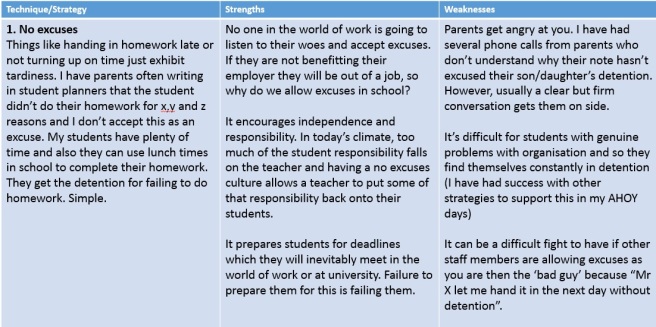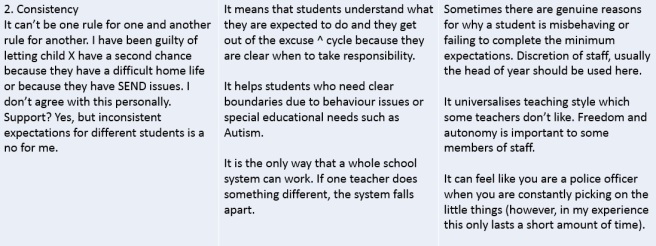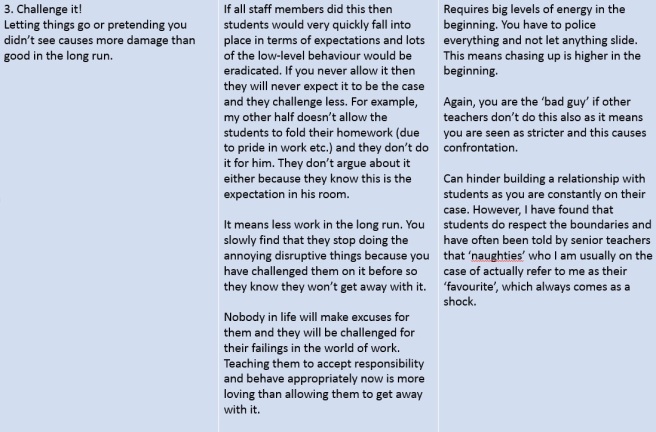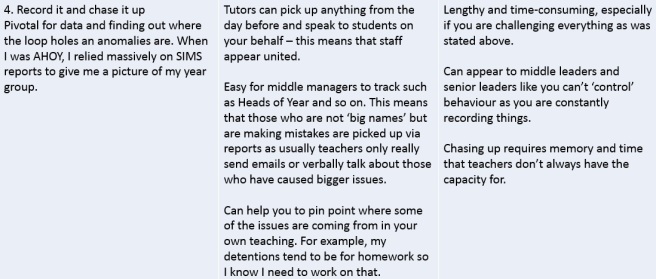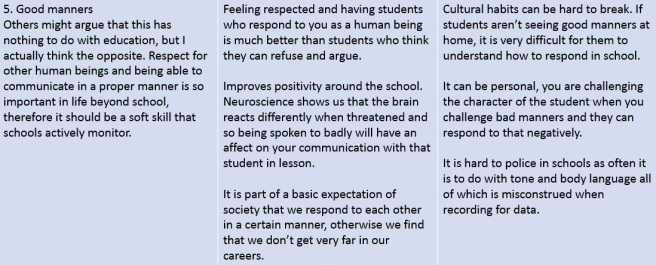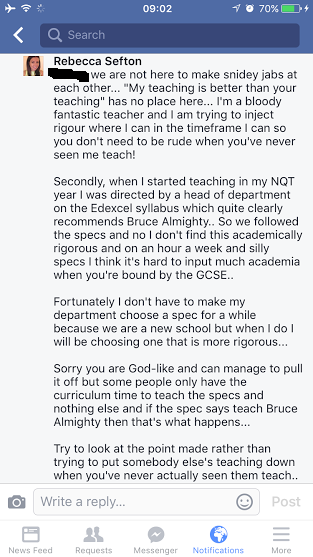One of the perks of this year has been that I have had complete autonomy over the RE curriculum. Also, with no GCSE/A-Level to focus on, I’ve had the time to completely focus on the often forgotten KS3 curriculum.
My agenda at the start of the year was to create an entirely academic style of RE that was both engaging to students but held credibility in the world of academia. In the beginning, my lesson planning was a little bit off as I had moved from a school with higher ability students to a school where the intake was generally lower and lots of the students were new to English.
I almost gave up thinking that my curriculum was too hard for these students but I did not. The results were amazing.
Since starting teaching I have wanted to plan my own curriculum and try out the more traditional style of theology that I encountered at university. I was fed up of teaching RE with no religion in it. With what little knowledge we have of the new GCSE, I knew that ‘religion’ needed a stronger role in the curriculum if these students are to have a chance of understanding it in the future (probably with only 1 lesson a week still!)
I made some tough decisions that I’m sure would be criticised by some RE teachers as I cut breadth of knowledge for depth and I worked chronologically, focussing on the main religions the students would need to know for GCSE. I would probably also be criticised by teachers who think it would not be ‘engaging’ to study these topics but I beg to differ. I also kept some of the lessons/units that did not necessarily harness the theological side of RE but that I felt were important to raise the importance of RE in my school (not all schools would need this necessarily).
Below is an outline of the curriculum I went for.
Year 7
Term 1+2 – Introduction to RE*
A focus on what Religion is and introducing key terms such as ‘Abrahamic’ and ‘Indian’ and why the world religions are categorised this way. Also introduced to ultimate questions and why religions deal with these.
*This would probably be the scheme I’d cut if I was in a school where RE was already appreciated. I did question whether it was worth doing and I think after teaching it, this really hooked the year 7’s and allowed me to take them into the theological route I planned without question. Also, with my school being a start up school I really needed that baseline knowledge to pursue the rest of the curriculum.
Term 3+4 – Study of the Old Testament
We started at the beginning, Genesis. We looked at the story of creation IN the ACTUAL BIBLE. We then continued on to the Fall of Mankind and asked questions such as who was actually to blame for the fall of man – Eve, Adam, God, The Devil. Whilst studying the text, the religious views were interwoven and students engaged with the Christian, Muslim and Jewish perspectives of this story.
In the next half term we moved on to look at the Prophets. Abraham (Isaac), Moses and Esther. The question I wanted the students to engage with throughout the whole unit was ‘is the Old Testament still relevant today?’ At all times, the students were invited to question the relevance of the text within the religions and also within modern secular society. They absolutely loved Esther.
This scheme taught me that the students can engage with the difficult religious literature if it is differentiated appropriately. I also found that my students who were lower ability in Literacy or New to English really progressed in reading and writing when reading the Bible. Also, KS3 children love a story and the OT stories are always exciting to them!
Term 5+6 – Judaism (Ancient vs Modern)
Moving chronologically through the Abrahamic religions and beginning with the Old Testament meant that it gave me the opportunity to explore Judaism. In my experience of teaching Judaism, it is one of the religions that the students misunderstand the most. We’d already covered the founding Fathers in the Old Testament so this allowed me to tie in the Judaism of the Biblical tradition quite neatly for the students.
This meant that for the next term of study, they will be able to look at Judaism as a religion in modern British society and effectively compare with the ancient traditions and have theological literature to back up their discoveries.
Year 8
Term 1+2 – Study of the New Testament
This, for me, was the most exciting of the schemes I created. Students began with a look at how the New Testament was formed. They studied the Synoptic Problem and questioned the authenticity of the Gospel writers using arguments I had only discovered at degree level. They analysed how Jesus and society was represented in each of the Synoptic Gospels and looked at the different styles the Gospel writers used.
In the second half of the unit, we focussed a little more on Jesus. Using the Biblical literature we looked at the characteristics of Jesus and some of the main events in his life. With the understanding of the difference between the Gospels, the students were really able to grapple with the problem of who the ‘real’ Jesus might have been historically. The question they focussed on for this unit was ‘Who was Jesus?’
Term 3+4 – Introduction to Islam*
Again, moving chronologically through the Abrahamic religions, I decided to try and introduce the students to a more academically rigorous Islam than the ‘shock-factor’ Islam that is sometimes taught in school.
Accepting that RE was a study of religious literature, the students engaged in exegesis of the Qur’an. However, their knowledge of Islam was a little less than Christianity and so basic fundamentals of the religion such as who Muhammad actually was and what society was like during that time did take over primarily for the first half term.
Once the students had built up a knowledge of God and Muhammad in Islam, they understood the Qur’an better and were able to engage with the Qur’an on some of the fundamental beliefs such as the 5 Pillars and the importance of the Ummah.
*I believe there was so much more to be done with the scheme and if I were to teach again, I would focus a lot more on fundamental beliefs linking with religious literature. However, being RE, we really struggled for time in this half term with year 8 going on lots of trips etc and missing too much RE to do this scheme justice!
Term 5+6 – Indian Religions
My initial plan for these terms was entirely different as I assumed there would be a year 9 RE curriculum but once my school made it clear that the students would begin their GCSE at the start of year 9, I thought it would have been more important to cover some parts of the other world religions, particularly as some of the understanding of topics such as death on the GCSE requires some knowledge of reincarnation and so on.
I am not entirely happy with my attempt to squeeze Buddhism, Sikhism and Hinduism into one unit; however, I am unsure as to whether this would actually be beneficial to them for GCSE and would probably revise this for future teaching.
I argued for termly assessments in RE so that actual progress could be shown rather than me wasting lessons assessing every 2-3 lessons when they couldn’t realistically show progress in that time. The results in the level of writing that was being produced was amazing. Like I said at the start, my intake were lower than average on entry and I had students dealing with genuinely difficult questions and producing coherent answers that demonstrated they had clearly understood these academically difficult concepts. The data was + in RE throughout the whole year (until I left for maternity) and when completing my SEF for the department (myself essentially) I was genuinely pleased with the strengths in my little department.
Obviously, there would be much to work on for next year and more specifically there needed to be more tailored lessons for the EAL students who should have been able to access these concepts equally with the English speaking students. I am proud of what I had created for my first year of being in control of the RE curriculum. I didn’t have to manage any people and taught all of this myself so it was a lot easier than if I had to try to get other teacher’s to understand my brain but I believe that with a little focus on KS3 and developing that academically rich and rigorous curriculum you can achieve great things in RE.
My students even petitioned the VP to ask for double lessons of RE instead of just one! I’ve never had that level of interest with ‘sexy’ RE!!
I am more than happy to share my plans/lessons with anyone who wishes to look at them also.

